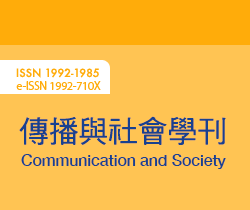 |
| April 2017 |
 |
40 |
|
| 專輯論文Special Issue Articles |
| 中國社會抗爭的媒介策略:基於環保與徵地事件的綜合比較分析 |
| Media Strategy of Social Contention in China: Comparing Environmental and Land Requisition Protests |
|
|
|
 |
 (6622)
(6622)
|
| 作者 |
周裕瓊、楊雲康 |
| Author |
Yuqiong ZHOU, Yunkang YANG |
| 關鍵詞 |
社會抗爭、媒介策略、環保、徵地、新媒體 |
| Keywords |
social contention, media strategy, environmental protest, land requisition, new media |
| 摘要 |
媒介策略是決定社會抗爭成功與否的關鍵因素。通過對2009–2014年間發生的40起群體性事件的綜合分析以及對其中兩個代表性案例—番禺事件與烏坎事件—的個案比較,本文試圖考察在中國特定的媒介和政治生態下,環保和徵地抗爭的行動者是如何根據不同階段的行動目標—早期的共識動員、中期的行動動員、晚期的社會動員—在媒介化抗爭、連結性領導力、媒介互激與循環這三大媒介策略中做出明智的選擇與切換。根據研究發現,本文重點討論了新媒體在行動者與主流媒體博弈中發揮的作用,指出未來的抗爭必須更加重視新舊媒體之間的合縱連橫。 |
| Abstract |
Media strategy is a key factor in shaping the outcomes of social contention. Based on a meta-analysis of 40 mass incidents from 2009 to 2014 and a comparative study of two well-recognized cases (i.e., the Panyu and Wukan incidents), we situated our study in China's particular media and political ecology. We analyzed the micro-processes in which the environmental and land requisition protesters in these incidents used three distinct media strategies (i.e., mediated contention, connective leadership, and media co-empowerment and circulation) for different purposes at different stages of collective action (i.e., consensus mobilization in the early stage, action mobilization in the middle stage, and social mobilization in the late stage). We also discuss the functions of new media in the game playing between activists and mainstream media. We suggest that the coordination between the old and new media will play a greater role in future social contention.
本文引用格式﹕
周裕瓊、楊雲康(2017)。〈中國社會抗爭的媒介策略:基於環保與徵地事件的綜合比較分析〉。《傳播與社會學刊》,第40 期,頁169–201。
Citation of this article:
Zhou, Y., & Yang, Y. (2017). Media strategy of social contention in China: Comparing environmental and land requisition protests. Communication & Society, 40, 169–201.
|
|
|
 |
| No.74 2025 October |
 |
| No.73 2025 July |
 |
| No.72 2025 April |
 |
| No.71 2025 January |
 |
| No.70 2024 October |
|
